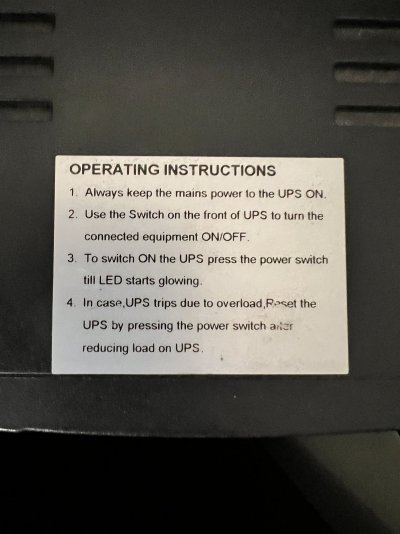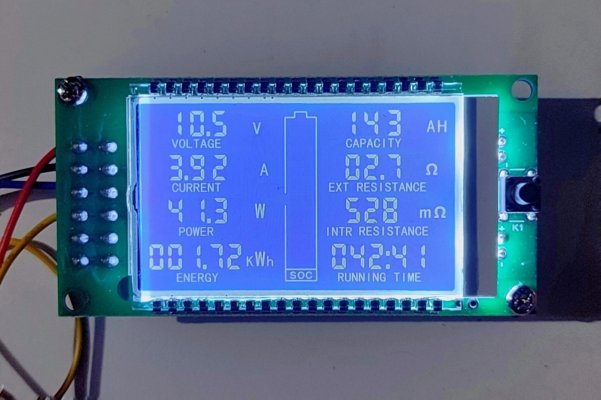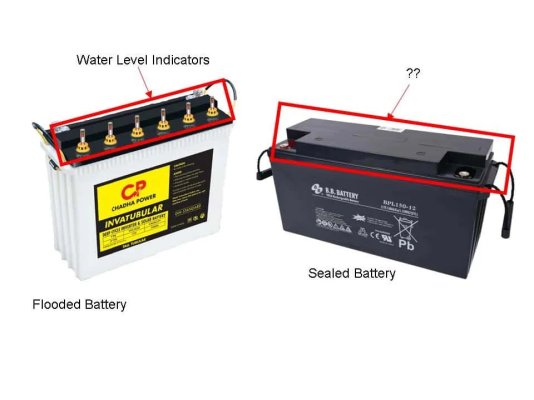Ah I see what the problem is: you have a partial understanding of things and love jumping to conclusions.
Let's start with you calling me an Apple fanboy. I have never owned, nor plan to ever own an Apple product for the simple reason that they are overpriced. If you recall, iPhones had Bluetooth but only for audio, not for sharing files. Even then I thought people who bought them were iDiots (no offense to them, if you have money to burn, burn awaym but you're paying more for less)
Now, allow me to refute your points one by one:
Vehicle batteries have breathing valve.
Breathing valve, no. It is an emergency pressure relief valve. When overcharged the battery produces Hydrogen gas and the internal pressure increases. To prevent explosions there is a mechanism that vents the excess gas and then closes. It does not allow the battery to
breathe in ambient air. Very similar to a pressure cooker: if the weight gets stuck for some reason, the emergency valve opens to dissipate internal pressure, else the cooker will explode.
The chemistry is also different.
Both UPS battery and car battery have the same battery chemistry: Lead electrode + sulphuric acid electrolyte. They are however designed for different applications. Car batteries need high current for a small duration. UPS needs low current for a longer duration. Hence cars use flat lead plates while home UPS ones use tubes (hence tubular batteries)
You might not have noticed it, but vehicle batteries aren't being charged for 24×7.
Yes. The purpose of a car's battery is to power the ECU and fuel pump, and provide a short burst of high current to start the engine. Thereafter the electricity produced by the alternator not only tops off the battery and stops once fully charged. Charging a battery constantly would be a waste of fuel + damages the battery as well. Newer cars with "smart alternators" are programmed to save fuel so much so that they don't even recharge the battery properly.
Vehicle batteries have some space to breathe. Batteries in APC UPS locked up in a pressure cooker like compartment without any vent.
Batteries are a closed system. They don't need "space to breathe" or air to work properly. And UPS battery compartments are not air tight, I can't imagine how you arrived at that conclusion.
Vehicular batteries are mounted vertically. Why don't you mount that acid containing battery on its side like an APC UPS and kindly report back to us?
@rsaeon mate, can you place your 150Ah on its side? What a great idea! APC can't possible wrong, right? I think, it might have just cured the cancer.
This + your previous point: Home inverter UPS and car batteries may use the same chemistry, but their design varies sligtly.
- Flooded Lead Acid battery: this is what home inverters use. They are easily recognizable by the electrlyte level indicator on top. When overcharged, water splits into Hydrogen and Oxygen and escapes as this is not a sealed system. Hence you have to top it off with distilled water to the correct level
- Sealed maintenance free battery: this is what cars and bikes use. Guess why? Mounting a battery upright does not mean electrolyte can't spill out. When turning or driving on rough roads, the battery experiences forces in various directions. With bikes, there is leaning also whilst turning. If acid could spill out as easily as you imagine, no one would be using vehicles.
AGM/VRLA batteries can be mounted in ANY orientation. This is what bikes and UPS use.
Why don't you stop preaching like an Apple snob? Your solution sounds like “You-are-holding-it-wrong”. Parroting lines from a manual might not be in our best interest.
The manual exists for this precise reason: to prevent oversmart consumers like yourself from deviating from the designed usage scenario. Next you will say it is far cheaper to run a petrol engine on kerosene.
Let's do the Math,
Pair of batteries costs = 1800
Batteries last = 2 years
Money to power UPS 24×7 for 2 years = Rs. 4000 (175 units per year x 2 years x Average unit price)
So, you want me to spend a full 4k in power bills to save the lives of batteries worth only 1.8k? Doesn't it sound like the insurance premium is pricier than the insured amount itself?
The purpose of a UPS is to protect your PC, not the batteries. To provide max backup time to allow you to save any important data and safely shutdown. To do this, the battery has to be kept at 100% charge state. And since you decided to make it personal, you sound like a moron who thinks
getting insurance/wearing helmet & seatbelt is only to prevent getting fined by cops. It's cheaper to bribe the cops and get away than paying expensive insurance premiums. You missed the WHOLE point of protection.
If I unplug UPS for 12 hours daily (when I'm not at the computer) I save 2k in power bills. That alone buys me an extra set of batteries. And no, UPS doesn't pull more than 20W if I resume its power after a break of 12 hours, I have checked.
So my suggestion still stands for anyone using APC and not suffering from far too many power outages. Unplug the UPS when not in use.
Do you have any supporting data from personal experience of this where your batteries lasted >2 years?
If your batteries are already lasting for only 2 years, then doing this will reduce it further. What you are saying is a hypothesis. What I am stating is a fact of battery chemistry.
The equation is simple,
- Unplug UPS when not in use, and this practice will literally give you a pair of new batteries for free every 2 years (through the savings in power bill).
- To hell with the hypothetical longevity of batteries if I'm getting new batteries for free.
- Plus, it saves another Rs. 1800 on batteries every 2 years.
- Not to mention, if someone is using an AC to cool their room, unplugging the UPS would yield further savings in power bill.
The only thing hypothetical here is your claim that the battery will last longer. If you had actually conducted this experiment, you would realize that the battery would wear out even sooner than 2 years. But you just want to feel good about your big brain idea, and call people trying to help you Apple snobs. Lead acids have a very low number of charge-discharge cycles. With this method you are using up a part of that cycle every single day. These are not deep discharge batteries either.
Forget everything, just tell me why you ignored the perfect solution I provided to your problem, and decided to go on a baseless rant:
- Add a switch to disconnect the batteries from the UPS
- Switch off mains supply to UPS when PC is off
- Switch off the batteries
It's almost like you're not looking for a solution but are here merely to rant and vent.





